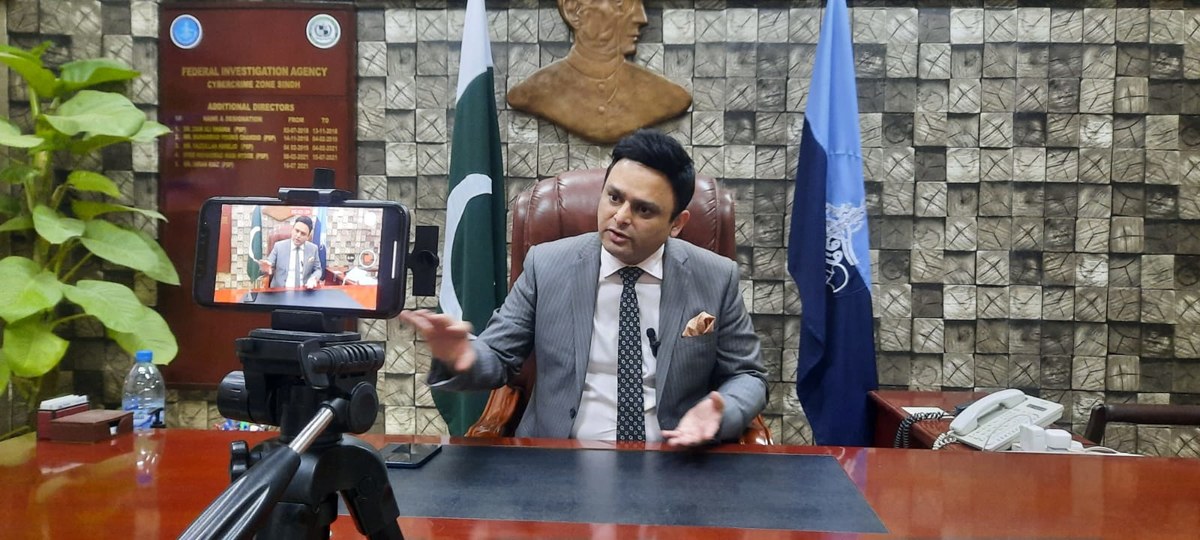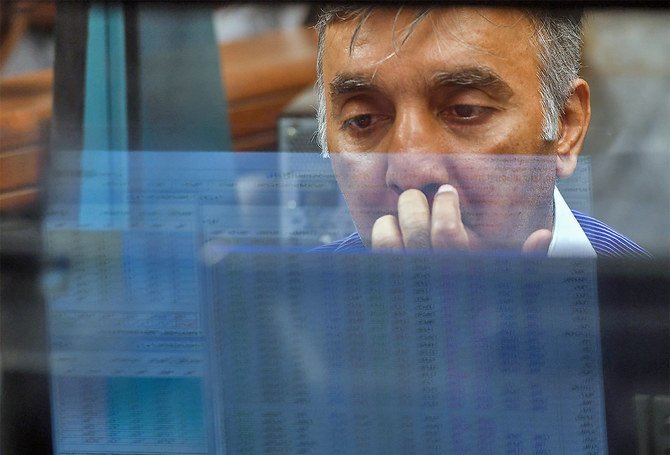KARACHI: Thousands of Pakistanis have lost their life savings in a $100 million cryptocurrency scam, the Federal Investigation Agency (FIA) has said, as it is probing the case amid recommendations to ban digital currencies in the country.
The State Bank of Pakistan on Wednesday recommended banning cryptocurrency, arguing that allowing it would cause capital flight. The recommendation followed another by a committee formed by the Sindh High Court that also urged imposing a “complete ban.”
The recommendations came as the court has been hearing a constitutional petition filed in 2019, which seeks to overturn the central bank’s guidance from 2018 advising banks and payment system operators against processing and investing in virtual currencies.
The current ambiguity surrounding the legality of digital currency trade has made it easier for Pakistanis to fall prey to the recent scheme.
Investigators estimate some 37,000 people, mostly from middle-class households in Punjab’s Faisalabad had been defrauded after investing money in the scheme that promised to multiply it.
“The range of investment was from $100 to $80,000,” Imran Riaz, head of the FIA’s cybercrime division in Sindh, told Arab News earlier this week. “On an average each member has invested $2,000, so with safe estimation we can say that it (amount involved) is $100 million.”
"There are many stories, many victims stories," he said. "There was one victim ... he sold all the gold of his mother to just get rich quickly, and his mother didn't know about it. He was crying all the time that 'what should I do and how should I tell this to my mother that I've lost everything?'"

Head of Federal Investigation Agency’s Cybercrime Zone in Sindh, Imran Riaz, talks to Arab News about a mega cryptocurrency scam in Karachi, Pakistan, on January 11, 2022. (AN Photo)
The scammers used fraudulent apps such as MCX, HFC, HTFOX, FXCOPY, OKIMINI, BB001, AVG86C, BX66, 91FP, UG, TASKTOK, with the wallets of Binance, the world’s largest cryptocurrency exchange, linked to them. They would add their victims to Telegram groups where they shared advice on cryptocurrency trading. Once the users transferred their money from Binance to the apps used in the scheme, the applications would crash, and victims would no longer have access to their funds.
Riaz said the FIA had approached Binance to get the record of 26 wallets that were used in the fraud.
“We have asked Binance that, once you have integrated these apps with the system, (you) must have asked for certain additional security checks,” Riaz said. “On the basis of this information we can make a case and arrest people.”
The company, he added, had agreed to extend its full support to the FIA and nominated a team comprising two former investigators of the US Department of Treasury to coordinate with FIA.
Simon Mathews, Binance public relations director for Europe, told Arab News the company was in touch with FIA, but did not provide more details.
Proponents of cryptocurrency trade in Pakistan argue that such scams are mostly caused by the absence of a legal framework.
Waqar Zaka, a Pakistani television host and activist who is pleading a case for regulating digital currencies, believes regulation would help keep fraud at bay.
“I pleaded the court that people have invested billions of rupees in crypto trade and the government should not declare it illegal,” he said. “Instead, it should devise a mechanism to legalize the business, and keep a check on transactions.”












